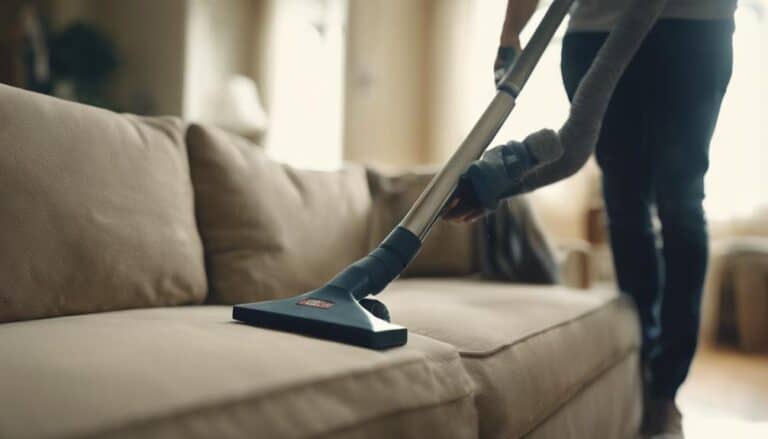How to Make My Dog Smell Better: Essential Grooming Tips
Pet owners understand that a dog’s natural scent can range from pleasurably earthy to something a bit more challenging to the senses. If you find yourself wrinkling your nose more often than not, it’s time to tackle the issue. Foul odors can be a sign of neglect or an underlying health problem, making it vital to address not just for the sake of our noses, but for the well-being of our furry friends as well.

Maintaining a dog’s pleasant smell involves more than the occasional bath. It starts with a thorough understanding of what causes odors and extends to daily hygiene practices. The right balance of these efforts can make all the difference. From the food they eat to the care products used on their coats, every aspect contributes to their overall scent. When these measures fall short, home remedies are often sought after, while professional care may become necessary for more severe or persistent issues.
Key Takeaways
- Regular grooming and proper hygiene are foundational to preventing unpleasant dog odors.
- A balanced diet and nutrition are key elements that contribute to a healthier, better-smelling dog.
- Persistent or strong odors warrant professional attention to address potential underlying health issues.
Understanding Dog Odor
Before delving into how to make your dog smell better, we need to understand the common reasons behind their odors. It’s essential to realize that a dog’s scent can be an indicator of their health and well-being.
Causes of Bad Smell in Dogs
Bacterial Infections: Dogs naturally have bacteria on their skin. However, when these bacteria proliferate excessively, it can lead to unpleasant odors. This overgrowth often signals an infection or poor hygiene.
- Yeast Infections: A common source of malodor in dogs is a yeast infection. Dogs with wrinkly skin, like Boxers, are particularly prone to these infections, which produce a musty smell.
- Skin Conditions: Just like humans, dogs can suffer from skin conditions that affect their scent. Allergies can cause skin irritation and increase oil production, leading to stronger odors.
Significance of Dog Breed
Certain breeds are predisposed to developing strong smells. For example, Bloodhounds, Beagles, and other scent hounds have more oil-producing glands, which are crucial for their tracking abilities but also produce a distinctive smell. Understanding your dog’s breed can help in managing their odor.
Health Issues Related to Odor
A foul odor can often be a clue to an underlying health issue. If your dog’s smell changes suddenly or becomes stronger, it could be a symptom of an illness or infection. Regular veterinary check-ups are critical to rule out any health issues such as ear infections, dental problems, or glandular disorders.
We must be observant and proactive about any changes in our dog’s scent, as it may be more than just an aesthetic issue.
Optimal Dog Hygiene Practices

Proper hygiene is crucial to keeping our dogs smelling fresh and maintaining their health. We’ll explore essential grooming tasks such as bathing, brushing, and ear care that contribute to a clean and happy pet.
Bathing Your Dog
Frequency: We start by giving our dogs regular baths using dog-specific shampoo and ensure the water temperature is comfortable. How often we bathe them depends on their breed, lifestyle, and skin condition.
- Shampoo Choice: Opt for shampoos designed to eliminate odors, not just mask them.
- Technique: When bathing, we carefully massage the shampoo into their coat and rinse thoroughly to prevent any residue, which can irritate their skin.
Brushing and Grooming
Regular Brushing: Our routine includes frequent brushing, which helps distribute natural oils, remove dirt, and prevent mats. This keeps their coat shiny and odor-free.
- Tools: Use a brush suitable for our dog’s coat type.
- Grooming Sessions: In addition to at-home care, we might schedule regular visits to a professional groomer, ensuring a thorough and breed-specific treatment.
Skin and Coat Care
Maintenance: Keeping our dog’s skin and coat healthy plays a significant role in how they smell.
- Conditioner: Using a conditioner after shampoo can help in keeping their coat soft and less prone to tangling.
- Diet: We also recognize a nutritious diet contributes to a healthy skin and coat; supplements such as omega fatty acids can be beneficial.
Ear Cleaning
Ear Hygiene: We pay attention to their ears as part of the grooming process to avoid infections and halt any unpleasant smells.
- Cleaning Solution: It is essential to use an appropriate ear cleaner.
- Technique: We gently clean the outer ear with a cotton ball dampened with the solution, being cautious not to go into the ear canal.
By following these practices diligently, we maintain our dog’s hygiene at an optimal level, ensuring they are both fresh and clean-smelling.
Diet and Nutrition for Odor Control
Proper diet and nutrition play a pivotal role in managing your dog’s body odor. We’ll guide you through choosing the right diet and avoiding common diet-related issues that can lead to unpleasant smells.
Choosing the Right Diet
When we opt for a high-quality, natural diet for our dogs, we’re setting the stage for better overall health, including odor control. A diet rich in good, whole-food ingredients like lean meats, healthy fats, and fibrous vegetables can help minimize unpleasant odors. It’s critical that we select foods that provide a balanced range of nutrients without relying on artificial additives or unnecessary fillers, which can contribute to poor digestion and, consequently, stronger body odor.
Avoiding Common Diet-Related Issues
We must be cautious to avoid including excessive table scraps or foods high in fillers in our dog’s diet. Table scraps can disrupt the balance of the diet and lead to gastrointestinal issues, resulting in bad breath or flatulence. On the other hand, dog foods that are heavy on fillers like corn or wheat may lead to poor nutrient absorption. To maintain our dog’s digestive health and control odors, we should ensure that the food we offer is not only palatable but also free from these common diet-related problems.
Home Remedies and Solutions
In this section, we’re going to explore some effective home remedies and solutions that will keep your dog smelling fresh without the need for commercial products. Our focus will be on natural deodorizers, DIY grooming products, and strategies for maintaining a clean environment for your canine companion.
Natural Deodorizers
Baking soda and vinegar are two powerhouse natural deodorizers that are safe to use around your pet. To neutralize unpleasant odors, sprinkle baking soda on your dog’s bedding or in areas where your dog spends a lot of time. Allow it to sit for a few minutes, then vacuum it up. For a quick homemade spritz, mix vinegar with water and lightly spray it on your dog’s coat, being careful to avoid the eyes.
- Baking soda: neutralizes odors on bedding and furniture.
- Vinegar: a natural deodorizer that can be used directly on your dog’s coat.
DIY Grooming Products
Creating your own dry shampoo for dogs can be a convenient way to freshen up their coat between baths. Combine equal parts cornstarch and baking soda, then add a few drops of essential oils specifically safe for dogs. Rub the mixture into your dog’s coat, and then brush it out thoroughly.
- Dry Shampoo Recipe:
- 1/2 cup baking soda
- 1/2 cup cornstarch
- 3-5 drops of dog-safe essential oil
Maintaining a Clean Environment
Regularly washing your dog’s bedding and toys can significantly reduce unwanted smells. Using unscented or mildly scented detergents helps ensure that your dog isn’t overwhelmed by strong fragrances. Additionally, employ a natural dog deodorizer spray in your home to neutralize odors without the addition of chemicals.
- Weekly Cleaning Tasks:
- Wash dog bedding in hot water.
- Clean and deodorize toys with a vinegar and water solution.
Professional Care and Advice
In maintaining the health and cleanliness of our dogs, seeking professional care is often necessary. We must recognize when expert advice is required to tackle the underlying causes of odor beyond regular maintenance.
When to See a Veterinarian
If your dog’s odor persists or is accompanied by other symptoms like itchiness, discomfort, or unusual behavior, it’s time for a trip to the veterinarian. Dogs can develop medical conditions like infections, dental problems, or skin diseases that may result in a foul smell. We rely on their expertise to diagnose and treat any issues that could be contributing to the odor.
- Symptoms that merit a veterinarian visit include:
- Persistent bad odor even after a bath
- Signs of skin irritation like redness, flaking, or hot spots
- Excessive licking or scratching
- Changes in eating habits or visible discomfort
Seeking Help from a Groomer
Professional groomers can help greatly in our dog’s odor management. A thorough grooming session includes more than just a bath; it serves as a full-service approach to tackle unpleasant smells.
- Benefits of regular grooming:
- Deep cleaning: Groomers use high-quality shampoos and conditioners that reach beyond surface level, helping to eliminate odor at its source.
- Ear cleaning: This often overlooked aspect of dog hygiene can be a culprit for bad smells.
- Nail trimming: Long nails can harbor dirt and bacteria, contributing to the overall smell.
Consulting a Veterinary Dermatologist
For persistent odor issues related to a dog’s skin and coat, a veterinary dermatologist specializes in diagnosing and treating these concerns. We seek their guidance to understand if allergies, hormonal imbalances, or more serious skin conditions are causing the unwelcome smell.
- When a veterinary dermatologist is needed:
- If regular baths and grooming do not alleviate the smell
- If the dog shows signs of skin disease that goes beyond the expertise of our general veterinarian
By utilizing the specialized skills of veterinary professionals, we ensure that our best friends stay as healthy and as fresh as they can be.
Additional Tips for Odor Management
In addressing dog odor issues, we mustn’t overlook dental care, anal gland health, and diet management to reduce flatulence. Each plays a critical role in the overall scent profile of our canine companions.
Dental Care for Dogs
Bad Breath: A dog’s breath can often be a strong contributor to its overall smell. Consistent use of dog-specific toothpaste along with a proper toothbrush can combat plaque buildup and combat halitosis. Brushing your dog’s teeth several times a week is an effective measure to ensure fresh breath and oral health.
- Materials: Use a toothbrush designed for dogs and enzymatic toothpaste.
- Frequency: Aim to brush their teeth 2-3 times per week.
Managing Anal Gland Issues
Anal Glands: Notoriously unpleasant in odor, a dog’s anal glands can sometimes become impacted, leading to a distinct and strong smell. Regular check-ups with a veterinarian can help prevent issues before they start, and they can express the glands if needed.
- Signs of Issues: Scooting, licking rear, foul smell
- Preventive Measures: High-fiber diets can maintain normal gland function.
Addressing Flatulence
Flatulence: Diet plays a significant role in managing flatulence in dogs. Introducing probiotics and ensuring a well-balanced diet tailored to your dog’s needs can reduce gas. Be mindful of your dog’s diet and avoid foods that are likely to cause digestive upset.
- Dietary Adjustments: Opt for easily digestible proteins and grains.
- Probiotics: Can aid digestion and reduce gas production.
Preventing Future Odors
In keeping our canine companions smelling fresh, we need to focus on preventive measures. By establishing a routine, making lifestyle adjustments, and selecting the right products, we can effectively minimize and prevent unpleasant dog odors.
Routine and Consistency
- Brush your dog: Regular grooming is vital. We should brush our dog’s coat at least once every couple of days to remove dirt, debris, and loose fur, which can contribute to odor buildup.
- Bathing schedule: Using a quality dog shampoo tailored to our dog’s coat and skin type, we can bathe them on a schedule that suits their specific needs without over-drying their skin.
Lifestyle Adjustments
- Activity level: We’ll monitor our dog’s activity level to ensure they’re staying active, which can help regulate their body functions and reduce oily skin and coat that can harbor bad smells.
- Home hygiene: A regular routine of cleaning our home, including the use of a pet-safe laundry detergent for their bedding and a thorough vacuum to pick up pet hair and dander, is important to prevent odor from settling in.
Choosing the Right Products
- Dog deodorants: When necessary, we’ll use vet-approved deodorants specifically designed for dogs, avoiding those with artificial, strong perfumes that can be irritating.
- Cleaning agents: We favor natural and enzymatic cleaners over traditional chemical options, as they are safer for our pets and the environment while being effective at odor elimination.





